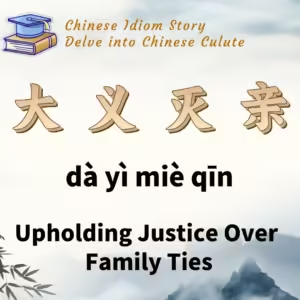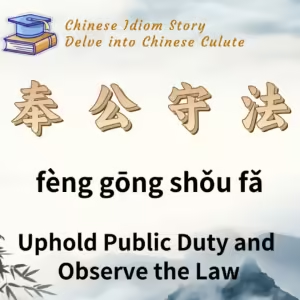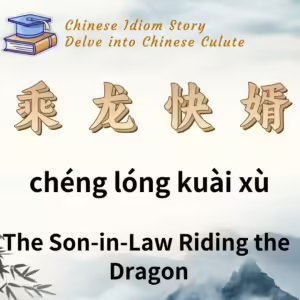
Chinese Idiom: 天经地义 (Tian Jing Di Yi)
English Translation: Heaven’s Law and Earth’s Principle
pīn yīn: tiān jīng dì yì
Idiom Meaning: This idiom refers to principles that are correct, unchangeable, and thus indisputable. “经” (jīng) refers to rules or principles, while “义” (yì) refers to righteousness or moral standards.
Historical Source: Zuo Zhuan (左传) – 25th Year of Duke Zhao (昭公二十五年)
Idiom Story
After the death of King Jing of Zhou (周景王) named Ji Gui (姬贵), according to tradition, his legitimate son born of the queen was to succeed him. However, during his lifetime, King Jing had considered appointing his eldest son Ji Chao (姬朝), born of a concubine, as the heir. This created a situation where Ji Chao also had a claim to the throne, leading to a fierce struggle for succession within the Zhou royal family.
To resolve this conflict, Duke Qing of Jin (晋顷公) convened a meeting with representatives from various vassal states in Heirang (黑壤) to discuss how to ensure stability within the royal family. The participants included Zhao Yang (赵鞅) from the State of Jin, You Ji (游吉) from the State of Zheng, and Le Daxin (乐大心) from the State of Song, among others.
During the meeting, Zhao Yang asked You Ji about the meaning of “li” (礼), which refers to ritual propriety. You Ji responded, “Our late statesman Zichan (子产) once said that li represents the heavenly laws and earthly principles. These are the standards set by heaven and the righteousness executed by the earth. They are the foundations for people’s actions, immutable and beyond doubt.”
Zhao Yang was pleased with You Ji’s response and promised to remember this principle. The other representatives also agreed with this reasoning.
Following this, Zhao Yang proposed that all vassal states should fully support the legitimate heir, Ji Jing (姬敬), by providing soldiers and supplies, and help him secure his position.
Subsequently, the states, led by the officials from Jin, provided military assistance to Ji Jing, enabling him to reclaim his throne and bring an end to the royal succession dispute.






